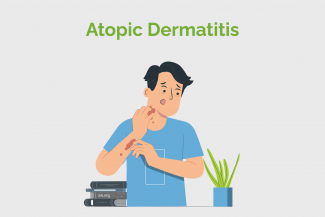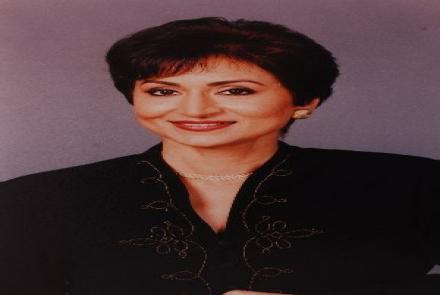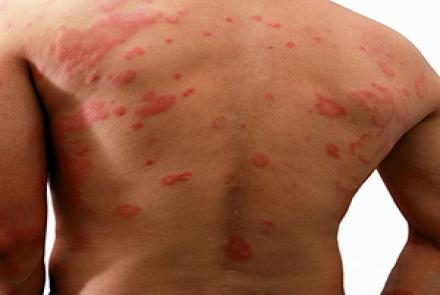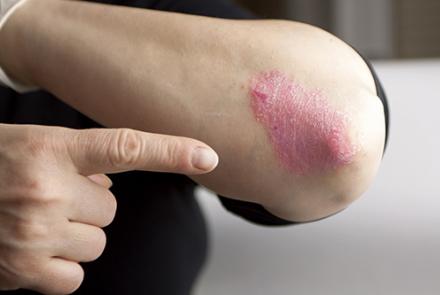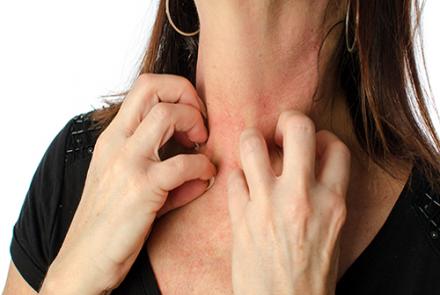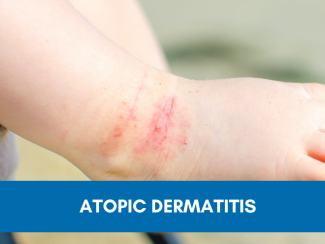
Symptoms vary from patient to patient. Itching is the most common symptom and may be severe and uncontrollable. When the child itches a particular area of the skin, the surrounding skin reacts to light touch by itching (this phenomenon is called allokinesis). Scratching the skin causes the inflammation to increase and makes the rash worse, leading to more inflammation and itching. This is called the itch-scratch cycle. The child often scratches till the skin bleeds. The itching may be so uncontrollable that repeated admonishments to stop scratching are often unheeded. Atopic Dermatitis is also called the twitchy skin syndrome. The child may often enrol a parent or another sibling to scratch areas that he or she cannot access, like the back. Itching can be severe enough to interfere with the child’s sleep.
The rash of childhood eczema differs in different children. It may look different from time to time or even look different in different parts of the body. Typically, the skin is dry, itchy with rashes on the face, in the elbows, behind the knees and on the hands and feet. The skin is sensitive and scaly. The skin may appear red, cracked, and flaky and have bumps (papules), blisters, red open sores and injury caused by scratching (excoriations). It may be wet and oozing. There may be some swelling. The cracked skin can be very painful.
Later on, because of the chronic rubbing and scratching, the skin in some areas appears scaly, thickened, and leathery with prominent lines on it. This is called lichenification of the skin. Some areas may also be discolored (red to dark brownish to blackish pigmentation).
The rash may get infected and appear as fluid filled bumps that ooze or have pus or become covered with yellow crusts.
There are many triggers that can cause eczema to flare. They aggravate the itch-scratch cycle and increase the damage to the skin. These factors may be environmental, emotional or related to infections. They may irritate the skin per se or they may be allergens i.e., substances that can provoke an allergy.
Dermatologist Dr Belinda Vaz delves deep into the causes, types and preventive measures for Atopic Dermatitis or eczema in children.


